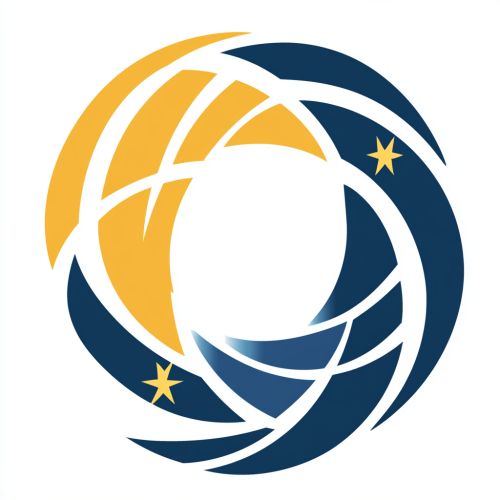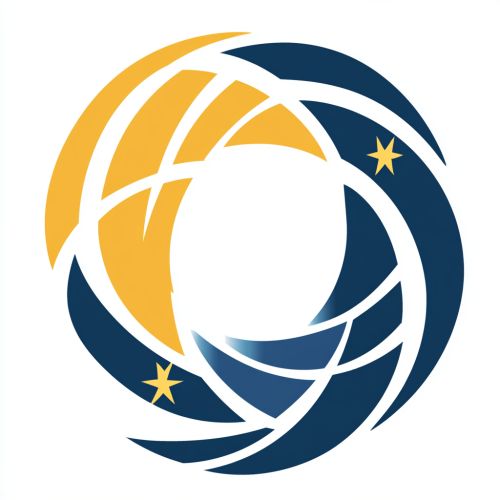European Mathematical Society
European Mathematical Society
The European Mathematical Society (EMS) is a learned society representing mathematicians throughout Europe. It was founded in 1990 to promote the development of all aspects of mathematics in Europe, including research, education, and applications. The EMS serves as a forum for the exchange of ideas and information among the mathematical community, and it works to foster collaboration and cooperation among national mathematical societies.


History
The idea of creating a European Mathematical Society was first proposed in the 1980s by several prominent mathematicians who recognized the need for a unified organization to represent the interests of the European mathematical community. The inaugural meeting of the EMS was held in Madralin, near Warsaw, Poland, in September 1990. Since then, the EMS has grown to include more than 60 member societies and over 3000 individual members.
Objectives
The primary objectives of the EMS are to:
- Promote the development of mathematics in Europe.
- Foster cooperation and collaboration among European mathematicians.
- Represent the interests of the European mathematical community at the international level.
- Support mathematical research, education, and applications.
- Disseminate mathematical knowledge and information.
Structure
The EMS is governed by a General Assembly, which meets every two years and is composed of representatives from the member societies and individual members. The General Assembly elects the President, Vice-President, Secretary, Treasurer, and other members of the Executive Committee, which is responsible for the day-to-day operations of the society.
The EMS has several standing committees, including:
- The Committee for Developing Countries, which supports mathematical activities in developing countries.
- The Education Committee, which promotes mathematical education at all levels.
- The Ethics Committee, which addresses ethical issues in the mathematical community.
- The Publications Committee, which oversees the society's publications.
Activities
The EMS organizes a wide range of activities to support its objectives, including:
- Conferences and workshops: The EMS sponsors and co-sponsors numerous conferences, workshops, and other scientific meetings throughout Europe.
- Publications: The EMS publishes several journals, including the "Journal of the European Mathematical Society" (JEMS), which is a leading international journal covering all areas of mathematics. The society also publishes newsletters, books, and other materials to disseminate mathematical knowledge.
- Prizes and awards: The EMS awards several prestigious prizes, including the EMS Prizes, which are awarded every four years to young mathematicians who have made significant contributions to the field.
- Education and outreach: The EMS supports various initiatives to promote mathematical education and outreach, including the European Mathematical Society Education Committee, which works to improve the quality of mathematics education at all levels.
- Collaboration and networking: The EMS fosters collaboration and networking among European mathematicians through its various activities and initiatives.
Membership
Membership in the EMS is open to both individuals and organizations. Individual members include professional mathematicians, researchers, educators, and students. Organizational members include national mathematical societies, academic institutions, and other organizations with an interest in mathematics.
Membership benefits include access to the society's publications, discounts on conference registration fees, and the opportunity to participate in the society's activities and initiatives.
Publications
The EMS publishes several high-quality journals and other publications, including:
- "Journal of the European Mathematical Society" (JEMS): A leading international journal covering all areas of mathematics.
- "EMS Newsletter": A quarterly publication that provides news and information about the society's activities and the European mathematical community.
- "EMS Monographs in Mathematics": A series of books covering various topics in mathematics.
- "EMS Series of Lectures in Mathematics": A series of lecture notes and other educational materials.
Prizes and Awards
The EMS awards several prestigious prizes to recognize outstanding contributions to mathematics, including:
- EMS Prizes: Awarded every four years to young mathematicians who have made significant contributions to the field.
- Felix Klein Prize: Awarded every four years to a young applied mathematician.
- Otto Neugebauer Prize: Awarded every four years for outstanding work in the history of mathematics.
Conferences and Workshops
The EMS sponsors and co-sponsors numerous conferences, workshops, and other scientific meetings throughout Europe. These events provide opportunities for mathematicians to present their research, exchange ideas, and collaborate with colleagues from around the world.
Some of the major conferences organized by the EMS include:
- European Congress of Mathematics (ECM): Held every four years, the ECM is one of the largest and most prestigious mathematical conferences in Europe.
- Joint Mathematical Meetings: Organized in collaboration with other mathematical societies, these meetings bring together mathematicians from different countries and disciplines to discuss recent developments in the field.
Education and Outreach
The EMS is committed to promoting mathematical education and outreach at all levels. The society's Education Committee works to improve the quality of mathematics education in Europe by developing educational materials, organizing workshops and conferences, and supporting initiatives to promote mathematical literacy.
The EMS also supports various outreach activities to raise public awareness of the importance of mathematics and to inspire young people to pursue careers in the field. These activities include public lectures, exhibitions, and competitions.
Collaboration and Networking
The EMS fosters collaboration and networking among European mathematicians through its various activities and initiatives. The society works closely with national mathematical societies, academic institutions, and other organizations to promote the development of mathematics in Europe.
The EMS also collaborates with other international mathematical organizations, such as the International Mathematical Union (IMU) and the European Research Council (ERC), to represent the interests of the European mathematical community at the global level.
Future Directions
The EMS is continuously working to address the challenges and opportunities facing the European mathematical community. Some of the key areas of focus for the future include:
- Promoting diversity and inclusion in the mathematical community.
- Supporting the development of new mathematical research areas and interdisciplinary collaborations.
- Enhancing the visibility and impact of European mathematics on the global stage.
- Strengthening the society's role in shaping mathematical education and policy in Europe.
